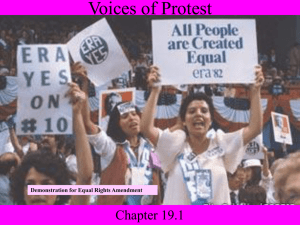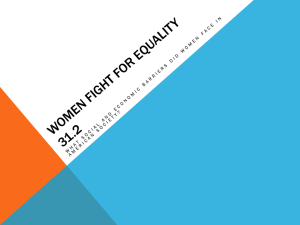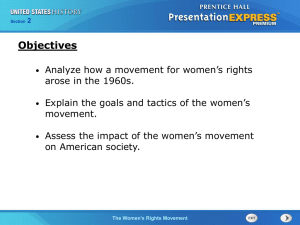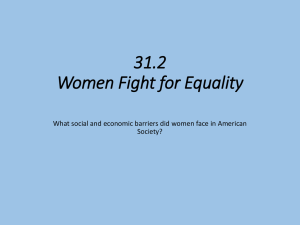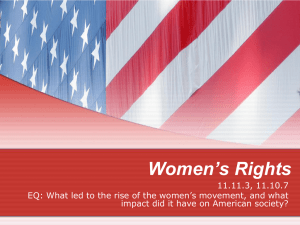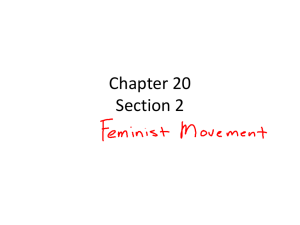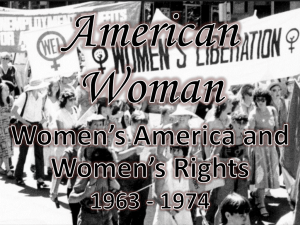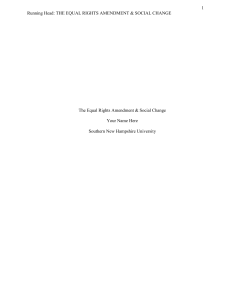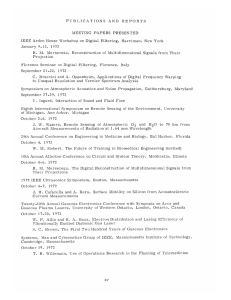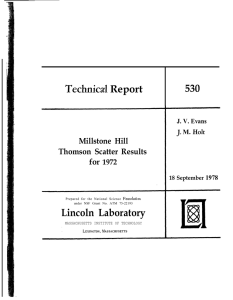Women's Rights Movement - Streetsboro City Schools
advertisement
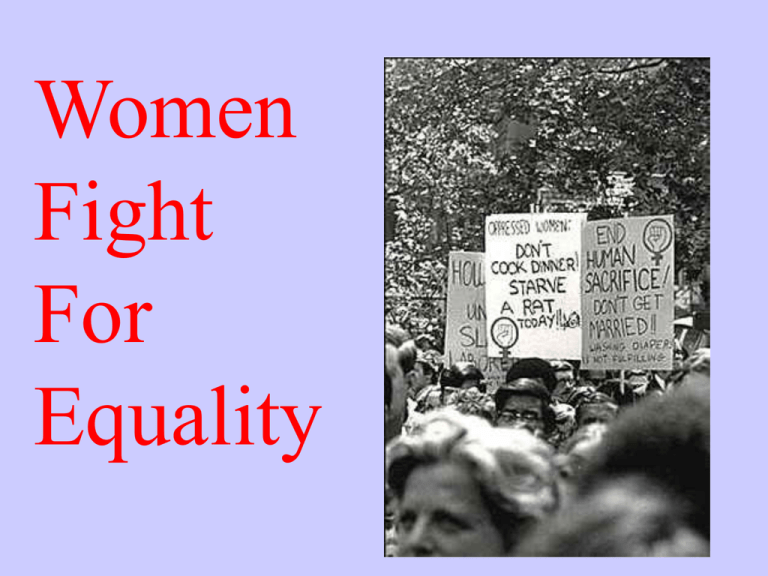
Women Fight For Equality “The problem lay buried, unspoken….It was a strange stirring, a sense of dissatisfaction, a yearning that women suffered in the middle of the twentieth century in the United States. Each suburban wife struggled with it alone. As she made the beds, shopped for groceries, matched slipcover material, ate peanut butter sandwiches with her children, chauffeured Cub Scouts and Brownies, lay beside her husband at night- she was afraid to ask even of herself the silent question- ‘Is this all?’” - The Feminine Mystique Betty Friedan Feminism The theory behind the women’s movement of the 1960’s was feminism, the belief that women should have economic, political, and social equality with men. In 1950, only one out of three women worked for wages. By 1960, that number had increased to about 40%. Still, during this time, certain jobs were considered “men’s work” and women were shut out. NOW The National Organization for Women (NOW) was created in 1966. NOW members pushed for: 1. Child care facilities that would enable mothers to pursue jobs and education. 2. Ban on gender discrimination in hiring. Gloria Steinem In 1971, Steinem helped found the National Women’s Political Caucus, a moderate group that encouraged women to seek political office. In 1972, she and other women created a new women’s magazine, Ms., designed to treat contemporary issues from a feminist perspective. Title IX of the Education Amendments of 1972 Title IX, is a United States law enacted in 1972 that states: "No person in the United States shall on the basis of sex, be denied the benefits of, or be subjected to discrimination under any education program or activity receiving Federal financial assistance."[ Roe v. Wade One of the more controversial positions that NOW and other feminist groups supported was a woman’s right to have an abortion. In 1973, the Supreme Court ruled in Roe v. Wade that women do have the right to choose an abortion during the first three months of pregnancy. ERA In 1972, Congress passed the Equal Rights Amendment (ERA). The amendment then needed ratification by 38 states to become part of the Constitution. The ERA would guarantee that both men and women would enjoy the same rights and protections under the law. Stop-ERA Campaign Conservative Phyllis Schlafly, along with conservative religious groups, political organizations, and many antifeminists felt that the ERA would lead to “a parade of horribles,” such as the drafting of women, the end of laws protecting homemakers, the end of the husband’s responsibility to provide for his family, and same-sex marriages. Schlafly said that radical feminists “hate men, marriage, and children” and were oppressed “only in their distorted minds.” Phyllis Schlafly The Movement’s Legacy The Movement transformed women’s conventional roles and their attitudes toward career and family. Most of all, the movement helped countless women open their lives to new possibilities. “For we have lived the second American revolution,” wrote Betty Friedan in 1976, “and our very anger said a ‘new YES’ to life.”
